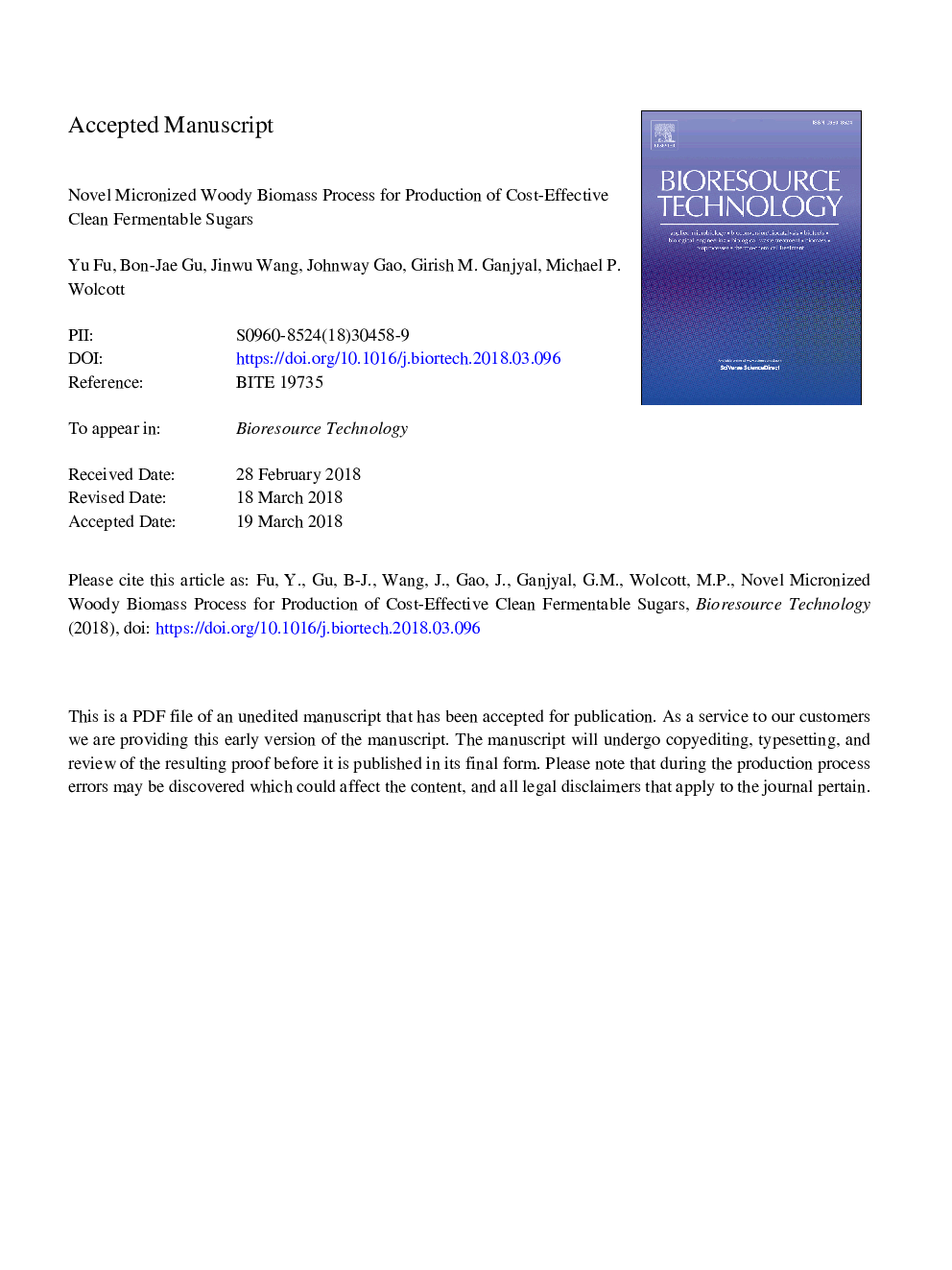| Article ID | Journal | Published Year | Pages | File Type |
|---|---|---|---|---|
| 7067261 | Bioresource Technology | 2018 | 38 Pages |
Abstract
Thermo-chemical pretreatments of biomass typically result in environmental impacts from water use and emission. The degradation byproducts in the resulting sugars can be inhibitory to the activities of enzymes and yeasts. The results of this study showed that combining existing commercial comminution technology can reduce total energy consumption with improved saccharification yield while eliminating chemical use. Impact mill was found to be the most efficient milling for size reduction of forest residual chips from ca. 2â¯mm to a specific value below 100â¯Âµm. The further micronization effectively disrupted the recalcitrance of the woody biomass and produced the highly saccharifiable substrates for downstream processing. In addition, extrusion can be integrated into a clean cellulosic sugar process for further fibrillation in place of the conventional mixing processing. The highest energy efficiency was observed on the impact-milled samples with 0.515â¯kg sugars kWhâ1.
Keywords
Related Topics
Physical Sciences and Engineering
Chemical Engineering
Process Chemistry and Technology
Authors
Yu Fu, Bon-Jae Gu, Jinwu Wang, Johnway Gao, Girish M. Ganjyal, Michael P. Wolcott,
